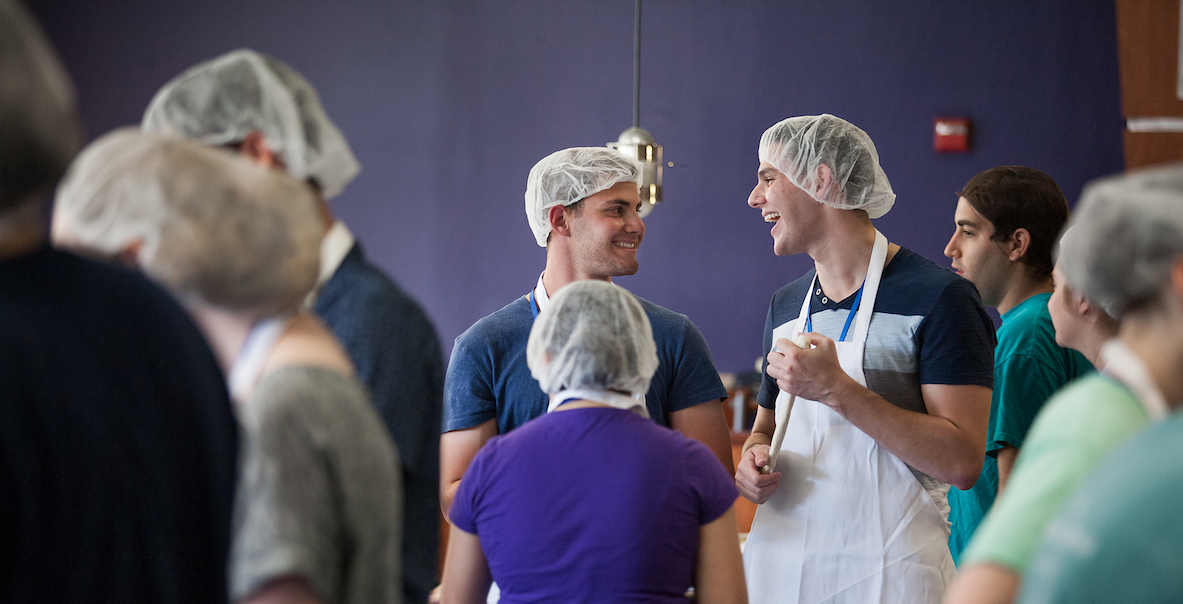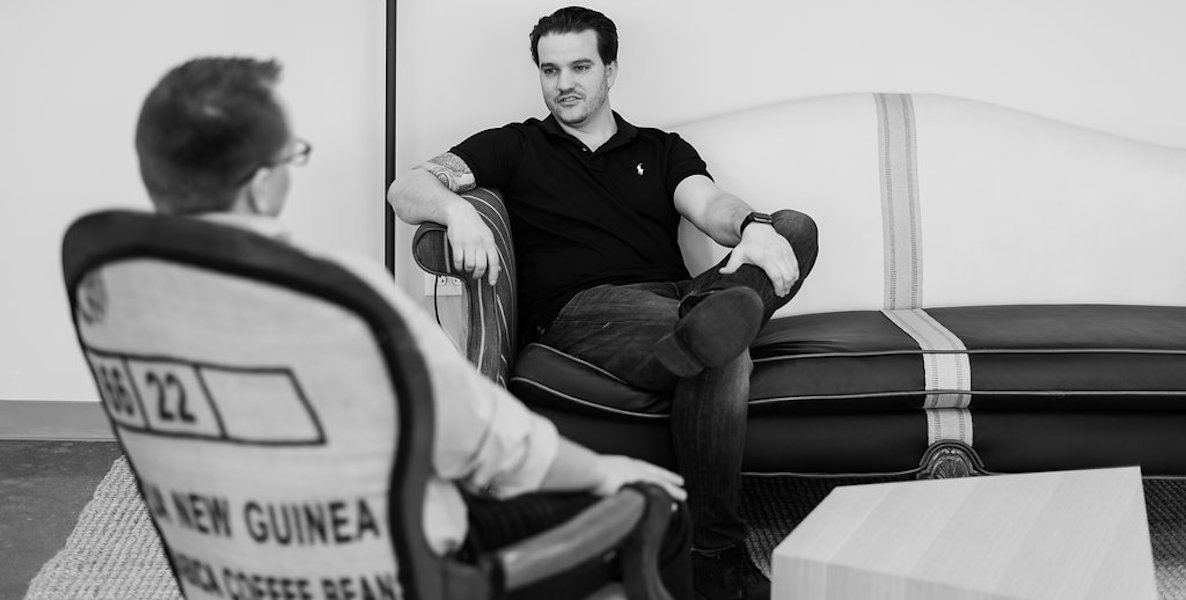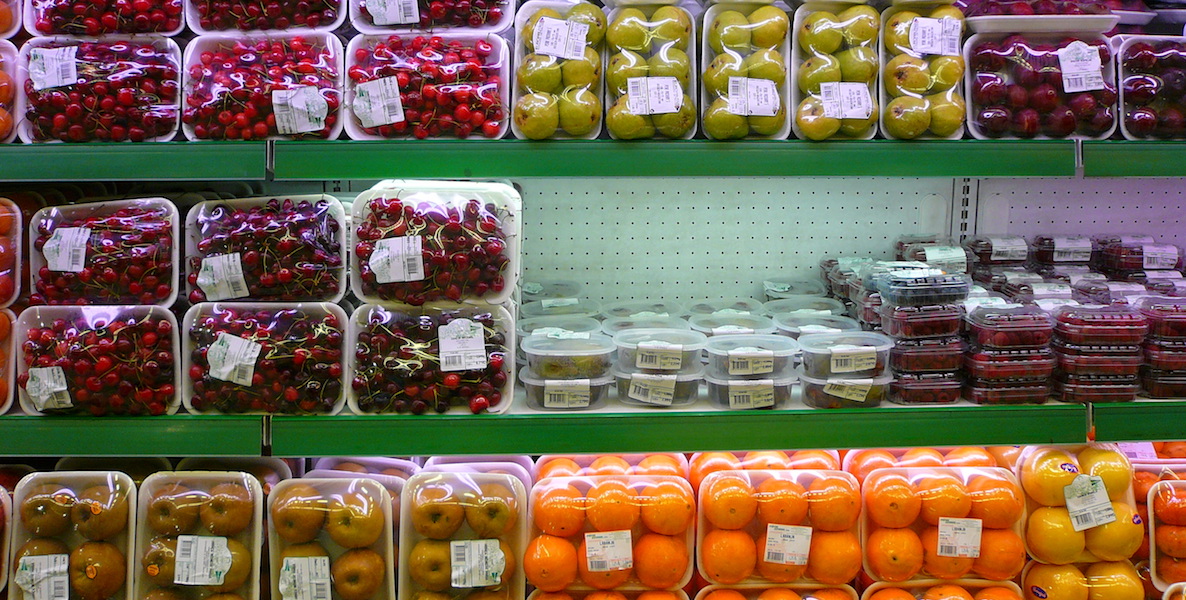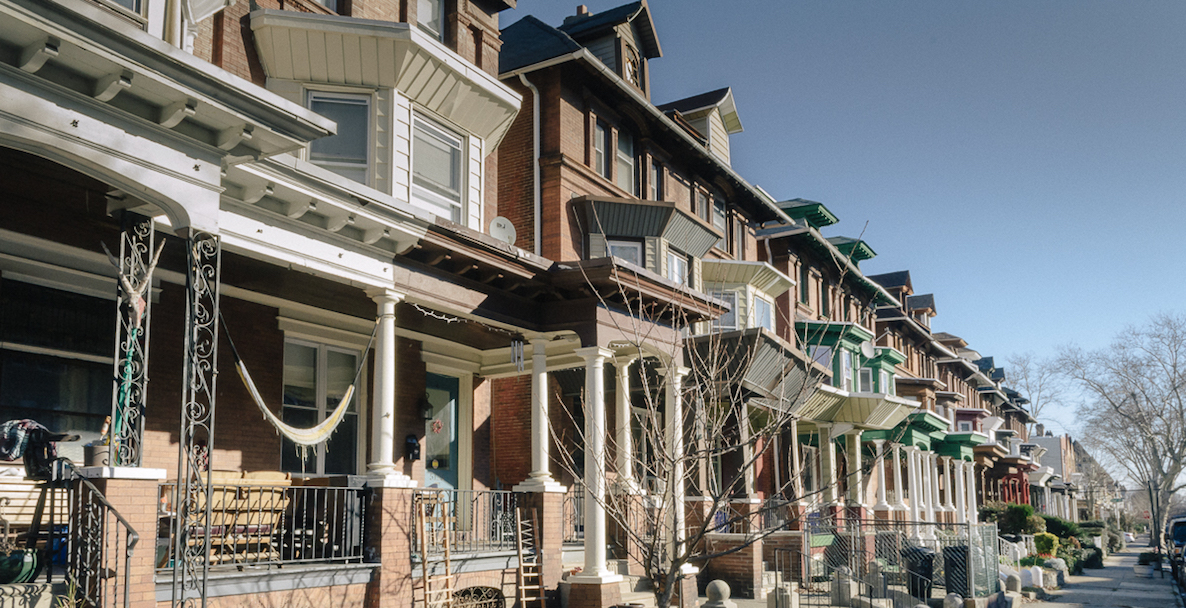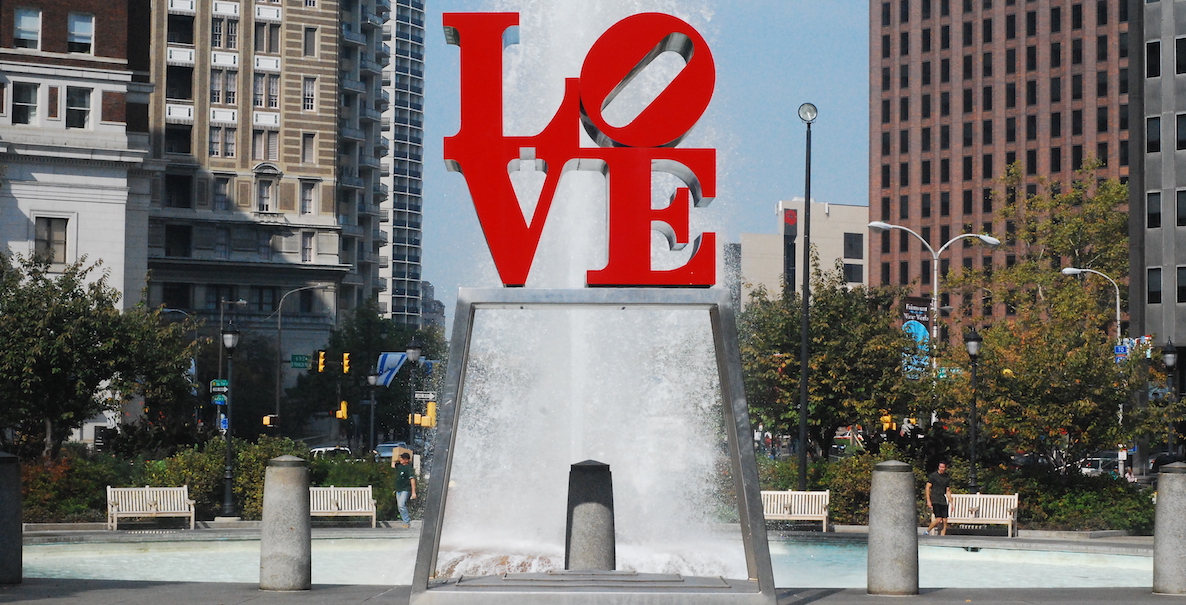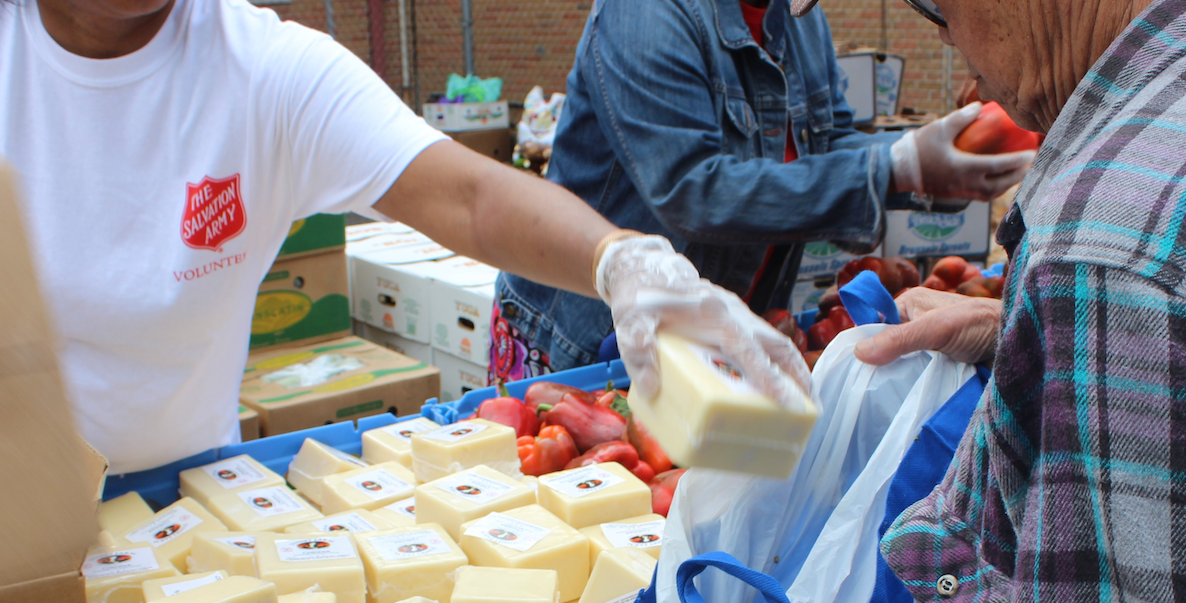Samantha Retamar and Kait Bowdler usually spend their time working to feed other people in Philadelphia. But for the last year, they themselves have spent an inordinate amount of time in their jobs eating. Cheese, that is.
“I can’t complain,” says Retamar. “It’s become an integral part of my job.”
Retamar and Bowdler aren’t dairy farmers, or cheese makers, or even cheese sellers—though they have sort of become all three. They work for Philabundance, a nonprofit bridging the gap between wasted food—apples with brown spots that won’t sell at Acme but are still perfectly edible and nutritious, melons that Walmart ordered too many of and won’t sell before expiration—and the 20 percent of Philadelphians who are facing hunger.
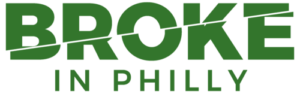
After more than 30 years in operation, Philabundance is now launching something new, something that is the source of Retamar and Bowdler’s snacking habit: Abundantly Good, a retail line of cheeses, the proceeds of which are used to turn surplus milk, which would otherwise go to waste, into cheese for the people facing food insecurity. The retail line officially launched at a party at Di Bruno Brothers’ Rittenhouse location last week after a year-long pilot with the company.
The cheese sells in eight ounce blocks in one of five flavors—jalapeño, smoked colby, colby, cheddar, and horseradish cheddar—for $5.99. Riverwards Produce, The Common Market, and Third Wheel Cheese Company also sell Abundantly Good Cheese, though some only sell it wholesale. The program was launched with the help of a $140,000 grant from the Claneil Foundation, to produce the first batch of cheeses, but is now financially self-sustaining.
More about the reporting collaborativeBroke in Philly
Here’s how it works: The retail line is produced by Lancaster farmers with milk produced by their cows, just like any other cheese. For every block sold, the retailer donates $1 to Philabundance, which then pays its farming partners to turn surplus milk into the same cheese, which they then provide to hungry Philadelphians for free.
It’s a win for everyone: The retailers make money; consumers get a delicious local cheese; the farmers are paid to use milk that otherwise would have gone to waste; hungry Philadelphians get fed; and the environment avoids the greenhouse gases produced by wasted milk.
“People say, ‘I’m going to support this company because I like what they’re doing in the world,’” says Bowdler. “So if you want to volunteer, great. But if you just want to buy cheese, buy our cheese.”
The idea stemmed from a problem—albeit a good one to have—that Philabundance and a few other local food banks faced last year, when the Pennsylvania Agricultural Surplus System gave them funding to purchase 12 tankers full of surplus milk—enough to stock a dozen grocery stores. “We were trying to figure out what to do with all this milk so it didn’t go to waste,” says Retamar, the nonprofit’s Communications Coordinator. That’s when it struck them: Turn it into cheese.
That project resulted in 66,000 pounds of cheese that Philabundance, along with Central PA Food Bank and Greater Pittsburgh Food Bank, distributed to clients. (Philabundance gave away 27,000 pounds.) Farmers, meanwhile, earned $165,000 for their part. It was a resounding success for all. “That’s when we decided to run with it,” Retamar says. Since then, Philabundance has connected with two Lancaster farmers to continue the project—a dairy farmer with excess milk; and a cheese maker down the road.
Eat Cheddar for Charity Do Something
Bowdler, Philabundance’s Deputy Director of Sustainability, says that the nonprofit decided to pursue this model—called upcycling—because of the food waste that the nonprofit continues to see despite its best efforts. “We have had tons of melons and bananas, but you can only eat so much. Produce goes to waste because we can’t do something with it quick enough,” she says. “We thought, ‘How do we subsidize this, how do we make sure it works?’ We really believe in this idea of how do we diversify the way we support ourselves as a nonprofit.”
Pennsylvania is the number two dairy state in the country, but with the availability of almond milk, coconut milk, cashew milk, and even lactose-free milk, as well as an increased number of vegan eaters, people just aren’t drinking it like they used to; yearly milk consumption in the US has dropped by more than a third in the past 30 years. Farmers, though, still have the cows, and the cows are still producing milk. As a result, 43 million gallons of excess milk were either discarded or lost nationally in 2016.

Milk expires quickly though, and getting it into the hands of hungry Philadelphians in time for it to be consumed is logistically difficult. By converting it to cheese, it lasts longer. “It provides a more shelf stable product,” explains Bowdler. “Instead of going bad in 21 days, you have 6 months to a year.”
Philabundance’s search for new strategies reveals a troubling reality: Despite the organization’s three decade-long existence, one in eight Americans, and one in five Philadelphians, still don’t know where their next meal is coming from. The new upcycling strategy could help them make a dent in the statistics that led to their founding. “Forty percent of food in the country goes to waste. There’s so much extra food and yet one in eight are going hungry?” questions Retamar. “That’s a problem that should not exist. That is such a silly problem.”
So far, $9,000 has gone straight to the farmers, resulting in 3,500 pounds of donated cheese. Retamar and Bowdler say the recipients are always astounded by how good it tastes, as they have become used to eating what shoppers have deemed unworthy.
“Dairy is very expensive. If you shop the perimeter of a grocery store, that’s going to be where most of your bucks are going,” says Retamar. “Having our clients have something of that quality is really astounding. They appreciate the quality.”
Scott Case of Di Bruno Brothers says Di Bruno’s cheesemongers love it just as much. “You know, we’re selling imported cheese from all over the world, but this is actually really good and very accessible,” he explains. “What helps is not only do you have a great story, but it also tastes good. It wasn’t a hard sell.”
Yearly milk consumption in the U.S. has dropped by more than a third in the past 30 years. Farmers, though, still have the cows, and the cows are still producing milk. As a result, 43 million gallons of excess milk were either discarded or lost nationally in 2016.
The gourmet food and gifts company, which has five brick and mortar locations in and around the city, has always tried to focus on being local and environmentally friendly, which made the decision to partner with Philabundance easy.
Di Brunos also helped Philabundance and their partners in Lancaster to adjust the recipes when needed, making it more sharp or mild, for example. In one instance, Case says, they recommended that the farm switch from a liquid smoke—a fluid that artificially flavors the cheese to make it taste like it was smoked—to a natural smoke to improve the flavor.
Abundantly Good isn’t going to stop with cheese. The retail brand also just released a spiced tomato jam, made by online food retailer TBJ Gourmet and sold by Di Bruno’s for $12.99 a jar. The proceeds from the jam pay for diced tomatoes, tomato soup, and tomato sauce for Philabundance clients. “It’s great because a really easy meal to make in your shelter or even in your kitchen at home is pasta with some sauce and veggies,” says Retamar.
The group is also working on two different yogurts, one spoonable and one drinkable, but they have only taste tested it with clients so far. The surplus here comes from the skim milk leftover in the butter making process; usually that milk is disposed of, but Philabundance is upcycling it into yogurt.
About solutions to hunger in PhiladelphiaRead More
In addition to wanting to upcycle to extend shelf-life, Abundantly Good was also a strategic decision conscious of food buying trends. Awareness of food waste and its impact is on the rise; Bowdler believes this is partially a result of the Anthony Bourdain documentary Wasted!. “I can’t tell you the number of people who have approached us and said, ‘I saw this documentary, what can I do?” she says.
Bowdler also thinks the political climate has pushed people to make small, personal changes that affect people and the planet because they see that perhaps it isn’t being done systematically at the government level. “We all vote with our dollar more. Maybe people aren’t feeling so much that their vote counts, but they can do it in nontraditional ways,” she explains.
“People say, ‘I’m going to support this company because I like what they’re doing in the world.’ So if you want to volunteer, great. But if you just want to buy cheese, buy our cheese.”
Photo Credits: Philabundance


